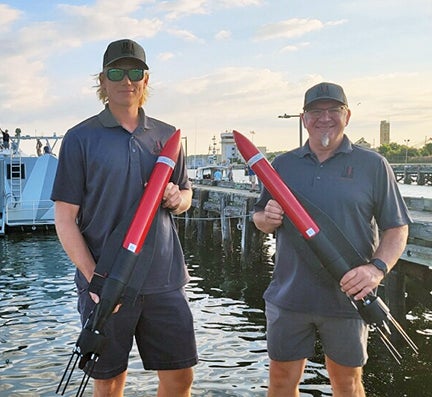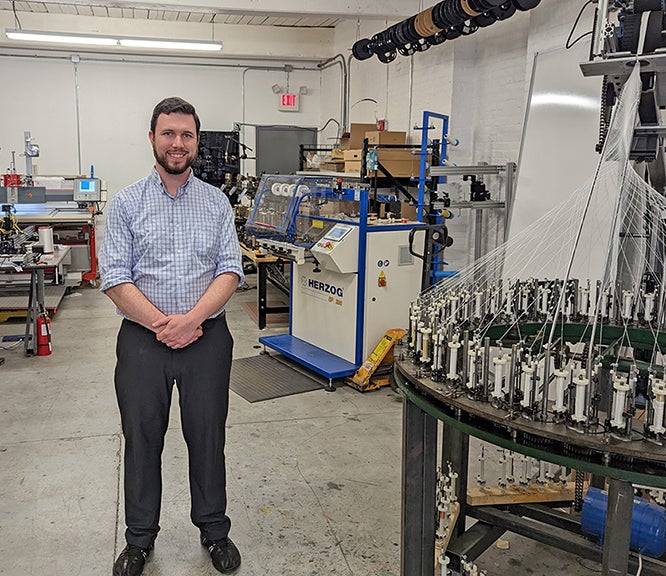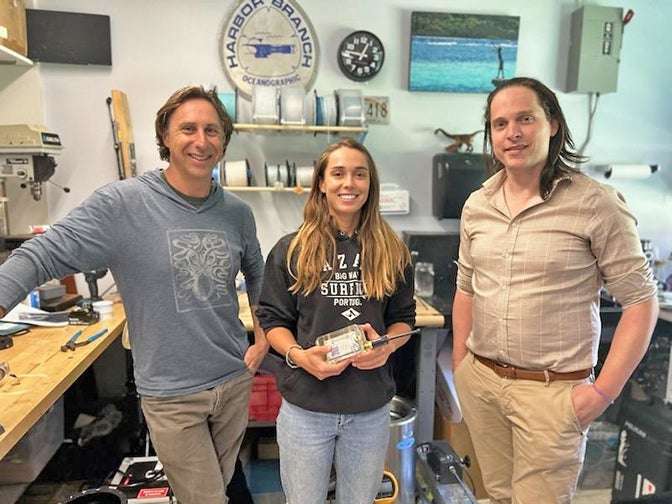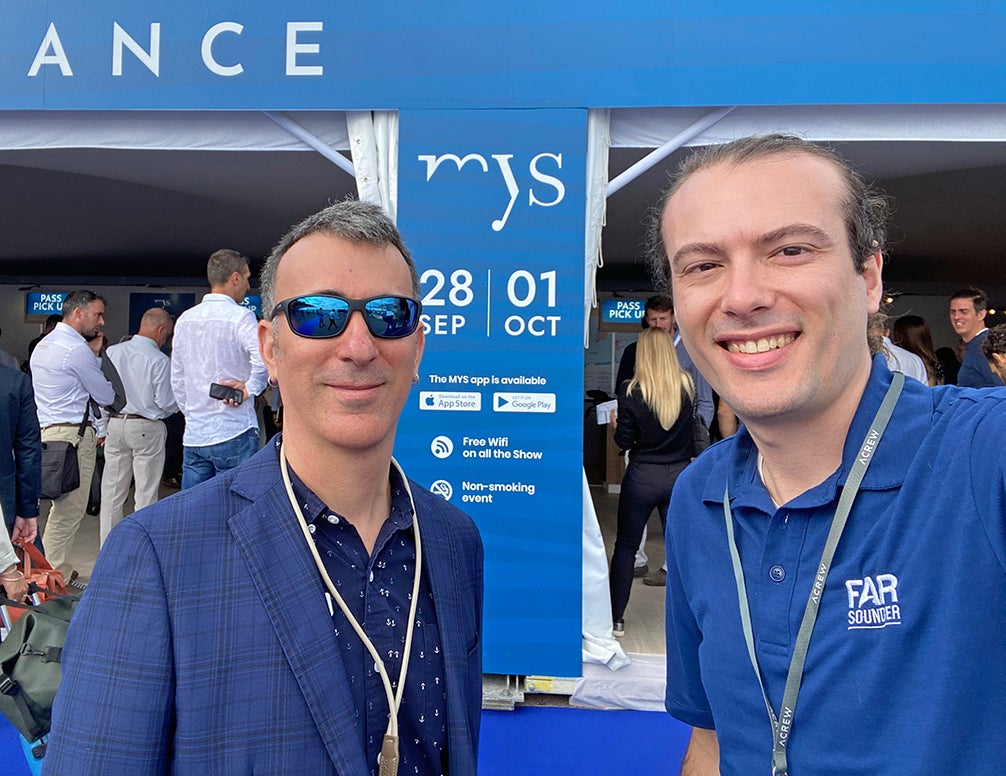KINGSTON, R.I. – Nov. 3, 2022 – The demand for ocean engineering and oceanography students from the University of Rhode Island has never been greater.
As new companies have formed and flourished in Rhode Island’s blue economy, and funding in the defense sector has increased, there are ample opportunities for students to gain valuable hands-on, real-world experience while enrolled at URI and fruitful employment once they graduate.
“I receive several inquiries each week from companies looking to hire our students at the undergraduate and graduate level,” said Professor James Miller, chair of URI’s ocean engineering department. “Some of these companies are involved with renewable energy, including offshore wind. Some of them work on coastal resilience, coastal engineering, shore protection or robotics. Others are defense-related.”

While the students graduating from the ocean engineering program are highly coveted, industry leaders also recognize the value that newer, upgraded facilities will mean to Rhode Island’s economy and to the students and faculty conducting research on URI’s Narragansett Bay Campus.
If Question 1 is approved on the November ballot, the $100 million bond would be used to make much needed improvements to several buildings on campus and to construct a new Ocean Engineering Complex and Ocean Frontiers building that will house new classrooms, offices and crucial laboratory space.
Driving the blue economy
“If we want to encourage more marine companies to make their home here in Rhode Island, we need the facilities to attract the best students and the best researchers,” said Matthew Zimmerman, chief executive officer of FarSounder, Inc. “Rhode Island has such a strong history in the marine sciences and technology. Let’s leverage that to increase economic growth, and not let it fall by the wayside and waste the opportunity.”

Zimmerman earned bachelor’s degrees from URI in ocean engineering, French and German through the International Engineering Program. He helped form FarSounder, which specializes in sonar technology and navigation systems, in 2001.
“Without the ocean engineering department, I wouldn’t be one of its graduates and likely wouldn’t have started this company in Rhode Island,” said Zimmerman. “So quite literally, my company wouldn’t be here in Rhode Island if it wasn’t for the ocean engineering facilities at the URI Bay Campus.”
FarSounder is based in Warwick, but has customers all over the world.
“Our customer base is global, but all of our products are designed in Rhode Island, made in the United States, with final assembly and testing taking place in Rhode Island,” said Zimmerman. “These are the types of high-tech engineering and manufacturing jobs Rhode Island needs.”

Matthew Jewell is originally from Old Lyme, Conn. After attending the Rhode Island School of Design, he discovered the ocean engineering program at URI. The program inspired him to form Juice Robotics in Rhode Island in 2013. The company is based in Middletown.
“I was drawn to URI because of the strength of the ocean engineering program,” said Jewell. “As a business owner, I remain here because of the vibrant ocean economy, in which URI plays a significant role.”
Producing a talent pipeline
Another Rhode Island-based robotics company that has benefitted from URI’s ocean engineering program is Jaia Robotics, Inc., headquartered in Newport.
“URI’s prestigious ocean engineering program has provided us with outstanding engineering talent,” said Ian Estaphan Owen, Jaia Robotics’ co-founder and chief executive officer. “We’ve hired students as interns and graduates to full-time positions to support our product development and production. The quality of the ocean engineers we’ve brought onto our team from URI has exceeded our expectations.”
Jaia Robotics specializes in developing low-cost, microsized autonomous marine vehicles used to collect aquatic data. Jaia’s CEO echoed Zimmerman’s sentiment of supporting the Bay Campus.
“Building a world class capability at the Bay Campus that can attract the best ocean engineering students to Rhode Island and develop a talent pipeline for the blue tech industry in Rhode Island will help our economy grow and service the needs of the this rapidly growing sector,” said Owen.
Partnering on research
In addition to filling positions with talented engineers from URI each year, industry leaders support the bond measure for what it will mean to their companies and to the state.
The opportunity to tap into expertise found at URI and work closely with its faculty and students on research, testing and product development provides businesses a competitive advantage.
“The extensive technical expertise at the URI Bay Campus has enabled small businesses like ours to continue driving blue technology developments forward through collaborations with students and staff,” said Darya Blout, founder of Deep Blue Composites, based in Bristol.
Blout earned a bachelor’s degree in ocean engineering from URI in 2016. Her company works with advanced materials to accelerate technological advancements in the commercial, defense, and aerospace sectors.
Like Deep Blue Composites, Nautilus Defense may not have as obvious of a connection to ocean engineering as an underwater robotics company does. However, the Pawtucket-based company’s collaboration on research and product development with URI has been invaluable.
“Partnering with ocean engineering has allowed Nautilus to work closely with world-class experts to develop and test novel fiber-based ocean sensing solutions,” said Jim Owens, principal of the company.
Owens and Nautilus Defense partnered with Professor Brennan Phillips to produce the smallest deep-sea system in the world that can provide a livestream video feed.

